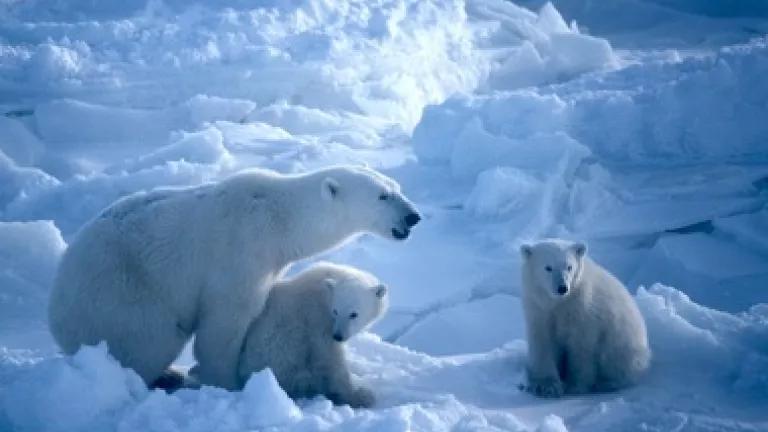
© IFAW/N. Ovsyanikov
Today is International Polar Bear Day – a day to celebrate one of the most amazing, beautiful, and just plain cool animals. Why are polar bears so awesome you might ask? Well, here are some fun facts that help explain the fascination so many of us have with these creatures:
- Adult male polar bears weigh between 1,300 and 1,700 pounds and adult female polar bears weigh about half that. Male polar bears measure 8-9 feet from nose to tail and female polar bears measure from 6-7 feet.
- Polar bear cubs learn to freeze and remain still while their mother hunts. If they move, the mother disciplines them, with a whack to the head.
- Some female polar bears deviate from the one room den, building dens with multiple rooms and even ventilation systems in the roof.
- Paw pads with rough surfaces help prevent polar bears from slipping on the ice.
- Polar bears can swim an average of 6 miles per hour.
- Polar bears can swim up to 100 miles (161 kilometers) at a time.
- A polar bear's fur is not white. Each hair is clear hollow tube. Polar bears look white because each hollow hair reflects the light. On sunny days, it traps the sun's heat and directs it to the polar bear’s black skin to keep the bear warm.
- A polar bear’s skin is black.
- A group of polar bears is known as a “Celebration.”
Unfortunately, despite how unique and astounding these creatures are, their existence is threatened by both climate change and the international commercial trade in their parts, which a single country – Canada – engages in. I know it seems pretty hard to believe, but the reality is that Canada kills around 600 polar bears a year to trade polar bear body parts (e.g., claws, skins, teeth) on the international market and quotas are only increasing.
Killing species whose future existence is already extremely precarious for their parts should be prohibited. That’s why, over the next two weeks, NRDC will be attending the Conventional on International Trade in Endangered Species (CITES) to attempt to convince the international community to ban this practice. Wish us luck!




